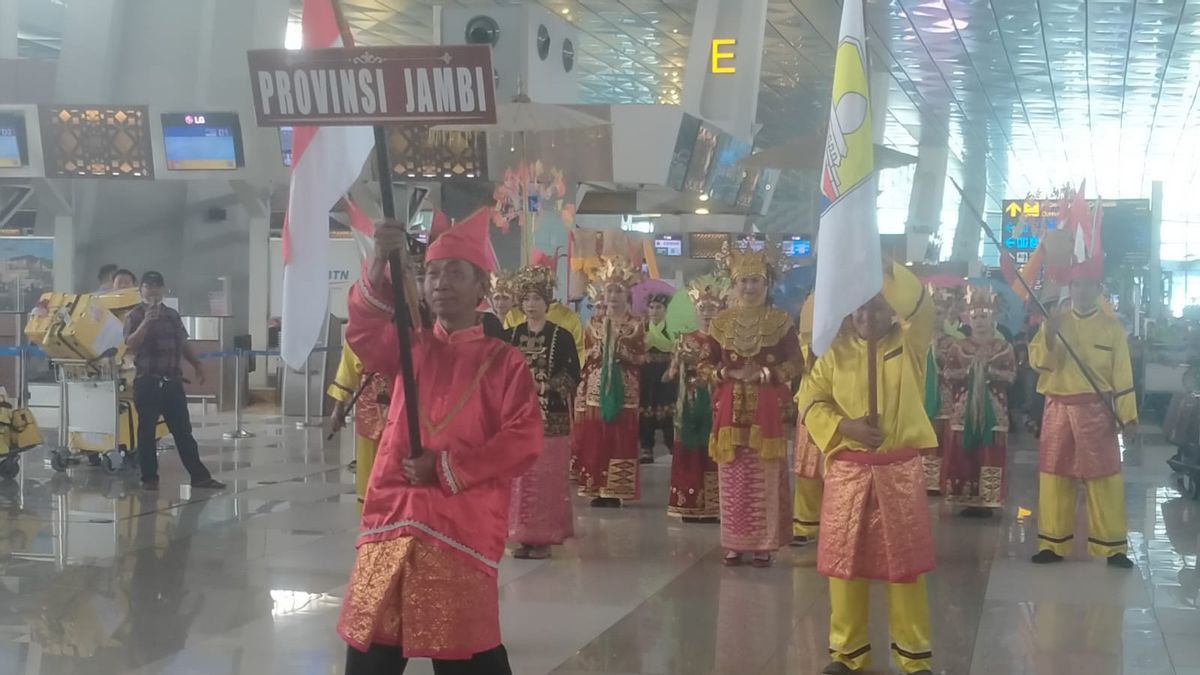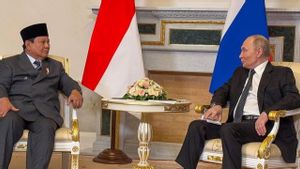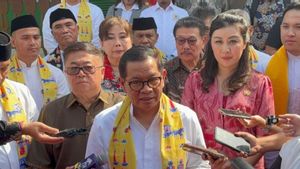YOGYAKARTA - Indonesia consists of many ethnicities, cultures and customs. The people of Jambi Province on the eastern part of Sumatra consist of various ethnic groups such as the Jambi Tribe, Kerinci Tribe to Minang descendants or clumps. Therefore, in Jambi there are various Jambi customs that are already popular.
Traditional customs in Jambi are still being held to maintain the noble values of culture and history and maintain the uniqueness of the Jambi ethnicity as part of the Indonesian nation.
Reporting from Antara, the traditional traditional function of customs in Jambi can be seen from several perspectives, namely:
Religious ceremony serves as a form of respect for God and his ancestors. An example is the Minta Ahi Ujan Ceremony to ask God for rain and the Ngayun Luci Ceremony to deliver the spirits of the people who died.
Traditional ceremonies socially serve to strengthen social relations between community members. An example is the Kumau Ceremony which is carried out together as a form of gratitude for the harvest of rice and the Sea Sedekah Ceremony which strengthens relations between fishermen.
Traditional ceremonies as a culture function in maintaining and preserving Jambi culture and become a forum to present various traditional arts, such as dances, music and traditional clothes. An example is the Nanak Ulu Tahun Ceremony which features various traditional Kerinci arts and the Beselang Nuai Ceremony which features traditional Bungo Tebo dances and music.
Some customs traditions are carried out in Jambi, including:
Maanta's tradition is a tradition of delivering food to relatives' homes. This tradition is very popular in Jambi. The uniqueness of Maanta's tradition is when the recipient gets to return the rantang that is already filled with the same type of food. This tradition has a deep enough meaning, namely strengthening friendship with relatives and getting to know the family tree better.
The tradition of Hunting for Sambun is a routine activity for the Duano Tribe community in Jambi which is held every year, namely capturing axes, a type of shell that is their favorite food. The Kampung Laut Festival which is held every year also aims to preserve culture and become an attraction for tourists.
The Bainai Night tradition is a Berinai Night traditional ceremony the night before the consent. The bride and groom will be given inai or known as nail dye. There is also an Inai Dance performance which is the main event of this traditional ceremony. For the local community, the Inai Dance is a symbol to protect prospective brides from human disorders or fine creatures.
Kumau tradition is a traditional ceremony that is usually carried out by farmers which is carried out every year when they are about to start agricultural activities. The stages are Ngapak Jambe or clearing land, watering seeds with water, Nyambau Beneih or sowing seeds and installing seeds.
Kenduri Sko's tradition is a ceremony to give titles to someone who is deemed worthy of the Depati or Permiti title. The organizers used flags for guests as a sign that the recipient was invited to the ceremony.
The Batanghari River Festival is a tradition carried out by the people of Jambi to commemorate Jambi City's Birthday every year. This event was held along the Batanghari River which became the icon of Jambi City. Various kinds of events and performances were staged there, such as traditional music, ornamental boat parades and dragon boat competitions.
SEE ALSO:
The originality and uniqueness of this traditional tradition in Jambi is one of the attractions of tourism for domestic and foreign tourists to visit and enjoy various traditions in Jambi.
That's a review of Jambi's customs. Hopefully useful. Visit VOI.id to get other interesting information.
The English, Chinese, Japanese, Arabic, and French versions are automatically generated by the AI. So there may still be inaccuracies in translating, please always see Indonesian as our main language. (system supported by DigitalSiber.id)














